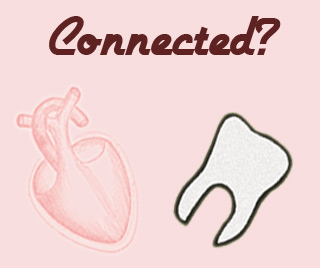 Dentists being one of the most important persons for the health care of a person, they still just don’t relate to your oral cavity and the teeth. And to confirm that, you can notice your dentist asking you questions about your general health, about the chronic diseases and your previous medical and dental treatments. Whenever you visit your dentist for the first time, you are either asked to fill out a form which contains a number of questions about your medical history, or you have to answer the same when the dentist asks you. This is one of the important parts, which helps determine the cause of the problem, the actual problem and also it modifies the way the dental problem can be treated. You would brush your teeth regularly, floss them and keep your mouth clean but that’s not always enough. There are some problems that can be related to any other general diseases that you might be suffering from.
Dentists being one of the most important persons for the health care of a person, they still just don’t relate to your oral cavity and the teeth. And to confirm that, you can notice your dentist asking you questions about your general health, about the chronic diseases and your previous medical and dental treatments. Whenever you visit your dentist for the first time, you are either asked to fill out a form which contains a number of questions about your medical history, or you have to answer the same when the dentist asks you. This is one of the important parts, which helps determine the cause of the problem, the actual problem and also it modifies the way the dental problem can be treated. You would brush your teeth regularly, floss them and keep your mouth clean but that’s not always enough. There are some problems that can be related to any other general diseases that you might be suffering from.
Everything that is being asked to you is important, as it is what affects the dental health. You need to let the dentist know about any previous medical conditions, any present illness you are suffering from, the medications you are taking right now, even the simplest forms of medications like painkillers, the vitamin supplements etc. You would also be asked about various medical conditins related to your heart and other important organ systems, which may modify the treatment module for your current dental problem.
Here are a few questions that you might need to answer, related to your medical history –
> When was your last medical examination done? (The approximate date or month, estimating the time before the present day)
> Are you suffering from any serious illness or got operation done? If yes, what is it?
> In the past 5 years, have you got hospitalized? If yes, for what problem?
> Did you had any of the following diseases or problems:
- Rheumatic fever (or) Rheumatic heart disease
- Any heart abnormalities you are suffering from, since birth
- Cardiovascular diseases – which include heart trouble, heart attack, angina, stroke, high blood pressure, heart murmur etc.
- Asthma or hay fever
- Epileptic seizures or series of faints
- Diabetes – Either Diabetes Mellitus or Diabetes insupidus
- Myocardial infarction
- Liver diseases – Hepatitis, Jaundice or any other
- Kidney disease
- Tuberculosis
- Persistant cough
- Any venereal disease
- Allergies
- Lung disease
- AIDS / HIV Infection
- Pregnancy
- Bleeding disorder like Anemia
> Are you allergic to any drugs like Antibiotics, most commonly penicillins?
> Are you allergic to anesthetics? (Based on your previous or dental experiences)
> Have you got any radiation treatment done earlier for tumor, cancer?
> Do you take any hormonal contraceptives?
> Have you had abnormal bleeding during any previous dental procedures?
> Are you taking any of the following drugs:
- Antibiotics like Penicillins etc.
- Anticoagulants
- Drugs to treat high blood pressure
- Corticosteroids
- Insulin or any other drugs for Diabetes
- Antihistamines
- Drugs for birth control
- Any other drugs
> Did you have any serious problem associated with the previous dental or medical treatments?
> Are you currently breast-feeding?
Relation of the Medical conditions to Dentistry
There are a few more complaint-related questions that the dentist may ask you, depending on the situation and condition. One of the easy reasons explaining about the importance of the medical history, is the relation of Diabetes to the gum disease. If you are suffering from Diabetes, the susceptibility to gum disease is more. And similarly, many other dental conditions and their susceptible is related to the medical conditions.
The drugs like aspirin, which thin the blood can rise the amount of bleeding after a dental extraction, so if you let your dentist know about the drug usage prior to the extraction, precautionary measures can be taken.
During pregnancy, the changing hormone levels often lead to gum disease, and this if ignored and not brought to the notice of the dentist, would be taken with some other cause.
The allergic conditions to various drugs can alter the way you would treat the disease, and also the dosage and regimen of drugs that are administered to you after the treatment in the dental office is completed.
thank